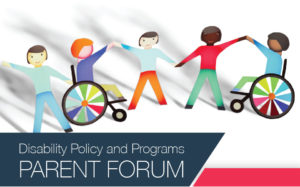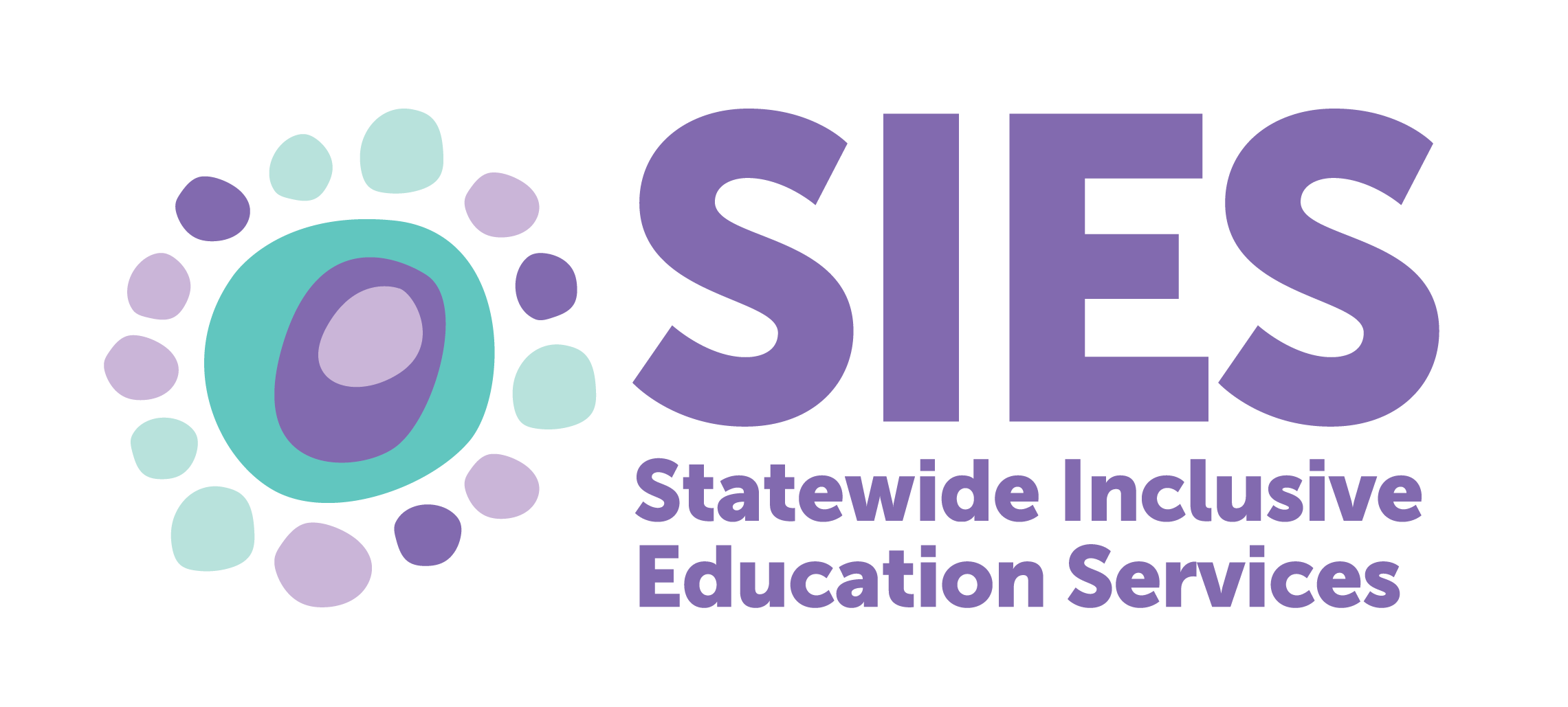
“Parent’s as drivers of change” was the theme for the 21st June Parent Forum held at the Special Education Resource Unit and Fulham Gardens Primary Performing Arts Centre. The parent forums and conferences are ground-breaking and are acknowledged by the department, as Ian May the Director of Disability Policy and Programs announced at the commencement of the forum.
The parent forums and conferences have been recognised as being innovative and leading to change and as a result been nominated for the 2019 Public Education Awards. The forums have been going since 2016 and supported by a parent reference group. In their role the members Kate Annells, Wendy Hosking, Julie Rungie, Lesley Heinrich, Eleanor Bersten, Louise Best, Narelle Highland, Kelly Lakeman, Lisa Moore and Michelle Wilton keep the focus on the education and care needs of children and young people with disability; support the planning by providing advice, comments and feedback on suitable topics, speakers and emerging issues; and act as parent consultants, particularly in relation to policy development and review.

At this forum the parent reference group led the table talk and recorded the discussion around some key questions:
- What is/is not working well for your child at preschool/school?
- What keeps your child settled at preschool or school?
- What is something you would wish to change?
The energy and conversation of the table talk has been captured in its entirety and can be read in the following link. Many topics were raised as both positive and negative experiences for parents and included leadership, the involvement of therapist and support staff, the understanding of funding, the One Plan, communication and waiting time for assessment.
Interestingly the points made in the discussions about “what keeps children settled at preschool or school” provided an excellent summary of what every parent would like to see happening every day for their child.
The factors that parents identified described children who were settled as experiencing a preschool or school environment where there was stability, continuity of teachers, strong routines, friendship groupings, excellent relationships and everyone knowing the schedules and expectations. They acknowledged that teachers who were prepared to adapt and learn and use well-structured strategies were often the ones that related best with their child. Strong leadership was a key contributing factor.
When families felt valued, there was a sense of belonging, openness, good communication and interest and care from all staff. There were engaging activities for children in class but also at recess and lunch, so they could engage in social experiences. Their siblings were supported and there was choice of options that motivated their children.
The trusting relationship which developed with their teachers ensured their child felt safe and were engaged. The positive engagement of peers, teachers and SSO’s led to acceptance and acknowledgement of their ability which could result in better outcomes and greater independence for their child.
These messages will be shared and be a guide for the Parent Forum Reference Group in planning for our conference and presentations and workshops in the future.
Ian presented a potpourri of information and as a result parents:
- Gained some insight into the complexity of the structure of the department.
- Learned about the changes to take place in term 4 this year and term 1 in 2020 as parents get access to an online funding form and are advised electronically at each stage of the funding application and outcome process.
- Experienced some early thinking on the reframing of disability from being rigid in a box to a more flexible fluid approach acknowledging the diversity of their children.
- Were introduced to the new dialogue discourse reframed in the title for the up and coming Parent Conference on Wednesday 25th September at the Adelaide Hilton with the theme “A different kind of brilliance”. As well as return performance by Kirsty Russell
- Informed of the liaison between the Flinders University with Professor Roger Slee in relation to furthering the conversation on Inclusion
- Made aware of the Parenting SA guides being reviewed on “Children with disability” and “Disability – brothers and sisters” (parenting.sa.gov.au )
- Were asked to think about and answer questions on the movement of Year 7 classes to a high school setting by Term 1 2022 (https://education.sa.gov.au )
- What would make a difference or support your child?
- What are the opportunities your families would like to focus on?
- Had highlighted the work to have a State Disability Inclusion Plan 2019 to 2023.
Our forum is for parents of children and young people with a disability but when our Keynote presenter Helen Connolly the Commissioner for Children and Young People talks about children and young people or “kids” she looks at them from an overarching lens. Her role is to ensure that the rights of children under the United Nations Convention of Rights of the Child is promoted projecting rights and interest around critical articles of the convention. These include:
- The right to not be discriminated against
- The right that the best interests of children are taken into account in guiding decision making
- The right to have services and support that promotes children’s survival and development
- The right to have their views and opinions heard and considered
- Particularly our first nation children the right to practice culture and language customs
For Helen it is the broader kind of diversity of children so even when we talk about a child with a disability it includes anyone for 0 to 18 years and who may also be:
- young adults, teenagers, children, pre-schoolers, toddlers and babies,
- aboriginal children and young people who identify or don’t identify with their culture, young people and children who’ve recently moved to Australia, who may be learning to speak English, who may speak many languages,
- children and young people who never get sick, have regular temporary illness, who have long-term chronic illness, children and young people living with; a physical disability, an intellectual disability, a sensory disability or all of them,
- children and young people living with one, two, several parents, with siblings or no siblings, or with grandparents, kids who are living with foster carers and extended families, kids who are homeless,
- kids who ride bikes, who catch buses, who drive in cars, who drive their own cars,
- kids who spend time online every day, who have no access to a computer, kids who are involved in sport or music or art or drama or dance or none of these.
- Kids who attend temple or mosque or synagogue or church or none of these,
- kids who are at public school, independent school, alternative education programs, home-schooled or not engaged at all with school,
- kids who are employment; in paid work, in voluntary work or looking for work, who are caring for a parent or sibling with an illness, a disability, or are young parents themselves.
There are currently 367,000 children under 18 in our state and of these 70% are doing ok, 20% are struggling and 10% are doing it “really tough”. The total number by predicted by 2040 will be 420,000.
Helen looks at the whole world view of children that comes from a different place and as she said it is only when we ask them, that we “actually understand” the impact that things we think work for them doesn’t actually work. She has some good snap shots of what children think. Through all her conversations the top five things that children stated were important to them were:
- School education and learning
- Family
- Doing things, they liked to do, activities, fun their interests and hobbies
- Opportunities to connect with community whether visiting the library , doing whatever – footy
- Friends – no difference between human or animal friends
The question asked by a parent at the forum was what happens to those children and young people who cannot actually speak? Her answer was that’s a challenge but that she would work with whoever it is to get their voice. We have followed up with Helen to find a date when she is available to meet with a few parents for coffee to chat.
Helen’s work can be followed here https://www.ccyp.com.au/ .
The day was concluded with the opportunity for the parents to select two workshops from the six offered in the afternoon session:
The following are precis of the workshop presentations
A. Social Skills Strategies, presented by Libby Brown, Manager, Special Education Resource Unit. This session looked at the hierarchy of social skills and why a child might behave they way they do. it then explored how a parent can support their child to develop the skills they need.
B. Jess Ward and Caitlin Gray presented a Spotlight on Student Support Services – Psychology. They discussed their roles including access to the service, assessments carried out, supports offered to teachers and working with other agencies. Participants were able to share their experiences and ask questions.
C. Strategies and Support for Setting Goals for your Child’s One Plan was presented by Rachel Scheuboeck. Rachel shared her strategies as a parent of a young adult with disability and an educator for planning and participating in setting goals for her son’s One Plan. The session included time for open discussion, providing support to empower parents with their child’s learning.
D. Caitlin Lean, Project Officer, Interoception presented Practical Strategies to Understand and Support Emotional Regulations. Participants were introduced to regulation scales and how this resource can be used in the classroom setting. She also provided information about Interoception and how parents can use these activities at home.
E. Special Education Resource Unit visit offered parents the opportunity to browse and borrow resources from the library and learn about what SERU can offer.
F. Spotlight on Student Support Services – Speech Pathology was presented by Kathryn Halyburton. Kathryn discussed the role of Speech Pathologists within the Department, including access to the service, assessments carried out, supports offered to teachers and working with other agencies. Participants were able to share their experiences and ask questions.

